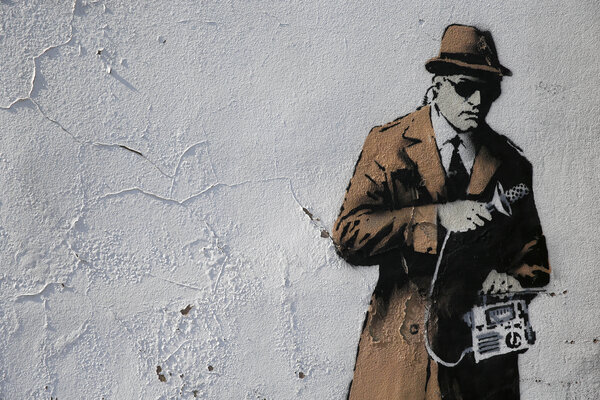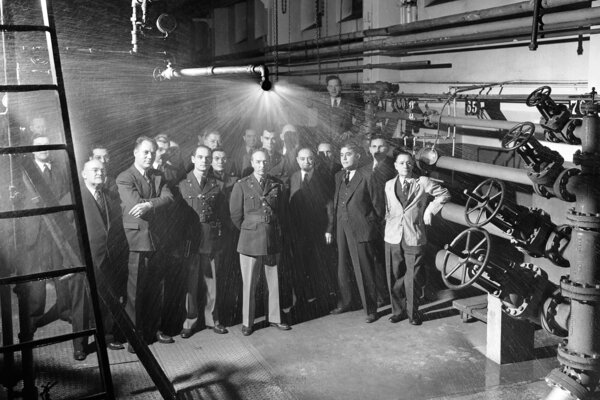All Passcode
 Why we need an open-source society more than ever
Why we need an open-source society more than everThe principles of open-source software don’t just make better technology — they are a blueprint for a better, more open society.
 Did Ukraine power grid hack give Russia an edge?
Did Ukraine power grid hack give Russia an edge?At an Atlantic Council event Thursday, experts said that a Ukrainian power outage allegedly triggered by Russian hackers may be just a small piece of Moscow's cybersecurity strategy.
 How Europe's new privacy rules affect entire digital economy
How Europe's new privacy rules affect entire digital economyThe European Parliament on Thursday adopted a single set of rules on Internet privacy safeguards, giving individuals much more control over how their information is handled by both European and American tech companies.
 Digital activists begin broad, grass-roots battle to fight antiencryption bill
Digital activists begin broad, grass-roots battle to fight antiencryption billIn a draft bill introduced this week, lawmakers are seeking to outlaw unbreakable encryption. Now, digital rights groups, which have warned about such a move, have a concrete proposal around which to launch a rallying cry for stronger privacy protections.
 Watch live: Cyberwar in Ukraine?
Watch live: Cyberwar in Ukraine?Does cyberwarfare offer tactical advantages on the battlefield? Join a panel discussion with Passcode and the Atlantic Council's Cyber Statecraft Initiative on Thursday, April 14.
 EU privacy advocates complain data-sharing pact not good enough
EU privacy advocates complain data-sharing pact not good enoughOn Wednesday, a group of data regulators from the European Union said that the Privacy Shield pact to ensure data flows between the EU and US does little to protect against the threat of surveillance.
 Opinion: Europe's privacy advocates should back off Privacy Shield
Opinion: Europe's privacy advocates should back off Privacy ShieldPrivacy Shield is certainly not a solution for eternity. But it fills the current void for safeguarding data flows across the Atlantic and attempts to match European and American views on privacy.
 It’s 2016 and you aren’t using encryption. Why?
It’s 2016 and you aren’t using encryption. Why?All breaches aren’t created equally. Encryption, not breach prevention, separates damaging hacks from annoying intrusions.
 US CIO Tony Scott on fixing cybersecurity's talent gap
US CIO Tony Scott on fixing cybersecurity's talent gapAt a Passcode event Tuesday, the US chief information officer said the federal government wants candidates who know languages, biology, and anthropology to fill cybersecurity roles – and one of its most important hires, the new chief information security officer, will be announced within 30 days.
 Hackers set to infiltrate New York film festival
Hackers set to infiltrate New York film festivalWhy DEF CON, one of the world's premiere hacker conferences, is setting up shop at one of the nation's top film festivals.
 Rep. Katherine Clark's crusade against the Internet's tormentors
Rep. Katherine Clark's crusade against the Internet's tormentorsThe congresswoman from Massachusetts has made stamping out online harassment one of her signature issues and as a result has felt the slings and arrows of the hordes of digital harassers.
 Watch live: Workforce 2.0, cultivating cybersecurity professionals
Watch live: Workforce 2.0, cultivating cybersecurity professionalsAround the world, an estimated 1 million cybersecurity jobs are currently unfilled. Join a panel discussion on how to cultivate cybersecurity talent on Tuesday, April 12.
 Stoking encryption debate, US officials press Apple to unlock another iPhone
Stoking encryption debate, US officials press Apple to unlock another iPhoneDespite dropping a case over the San Bernardino, Calif., iPhone, the Justice Department wants Apple's help in a similar New York case. Its pursuit of the case comes as lawmakers weigh a bill to force companies to help investigators retrieve data.
 Tor aims to grow amid national debate over digital privacy
Tor aims to grow amid national debate over digital privacyThe Tor Project's new executive director Shari Steele is on a mission to change the image of the group's anonymous browser and make its 'clunky and hard to use' technology more user-friendly.
 Tor aims to grow amid national debate over digital privacy
Tor aims to grow amid national debate over digital privacyThe Tor Project's new executive director Shari Steele is on a mission to change the image of the group's anonymous browser and make its 'clunky and hard to use' technology more user-friendly.
 NSA data-sharing plan opens door to mass surveillance, say rights groups
NSA data-sharing plan opens door to mass surveillance, say rights groupsDigital advocacy, privacy, and civil liberties group are urging the National Security Agency not to pursue a plan they argue could lead to widespread warrantless domestic surveillance.
 Will recycling the San Bernardino iPhone hack put consumers at risk?
Will recycling the San Bernardino iPhone hack put consumers at risk?Now that the FBI has unlocked the San Bernardino iPhone, there's a new public debate over how to responsibly disclose vulnerabilities the government finds. Security pros say that once a technical flaw is announced, it must be patched quickly – but law enforcement may be able to reuse them in future cases.
 Will recycling the San Bernardino iPhone hack put consumers at risk?
Will recycling the San Bernardino iPhone hack put consumers at risk?Now that the FBI has unlocked the San Bernardino iPhone, there's a new public debate over how to responsibly disclose vulnerabilities the government finds. Security pros say that once a technical flaw is announced, it must be patched quickly – but law enforcement may be able to reuse them in future cases.
 Opinion: Why trade secrets bill will deter cybercrime
Opinion: Why trade secrets bill will deter cybercrimeThe Defend Trade Secrets Act is another sign that the US government is finally acknowledging that an active deterrence must be a key part of any successful cybersecurity plan.
 Can testing outfit Underwriters Laboratories secure the Internet of Things?
Can testing outfit Underwriters Laboratories secure the Internet of Things?On Tuesday, the testing lab best known as UL – and for its stamp of approval on microwaves and TV sets – rolled out standards aimed at securing the growing number of Internet connected products.





















